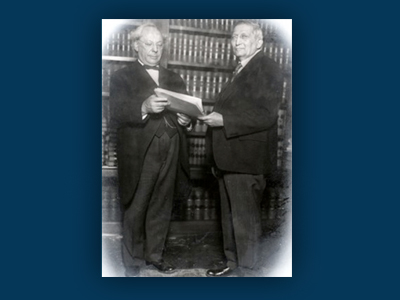April 28, 1918
Almost six months after British Foreign Secretary Arthur James Balfour’s letter of support for a Jewish national home in Palestine, the American Jewish Committee (AJC) issues a bland response. For the next thirty years, the AJC will remain lukewarm or neutral in its support of Zionism.
At the conclusion of World War I, most Jews in America were either vaguely supportive of or fully opposed to Zionism. Very few were devoted supporters. The American Jewish Committee’s weak response to the Balfour Declaration reflected the reality that most American Jews did not want to move to Palestine. Instead, recently arrived Jewish immigrants from Europe saw America as their “new Zion.” The AJC’s stated purpose was “to obtain for the Jews in every part of the world civil and religious rights, to protect them against unfavorable discrimination, and to secure for them equality of economic, social, and educational opportunity.” Although its support of the Balfour Declaration was tepid, the AJC did recognize that a Jewish homeland could provide safety for Jews still suffering oppression in other lands.
The AJC stated that those who wanted to settle in Palestine were welcome to do so. The Committee envisaged Palestine as a center “for the stimulation of our faith, for the pursuit and development of literature and science” and for other cultural activities. It did not envisage an independent Jewish sovereignty. It also reminded members of the strong reservations in the Balfour Declaration that supported the civil and religious rights of Arabs in Palestine, and of the political status enjoyed by Jews in other countries, including in the United States.
The complete AJC statement from April 28, 1918, is available here on pages 45-46.
The photo shows Prime Minister Menachem Begin with three of the released prisoners on April 29, 1979.









